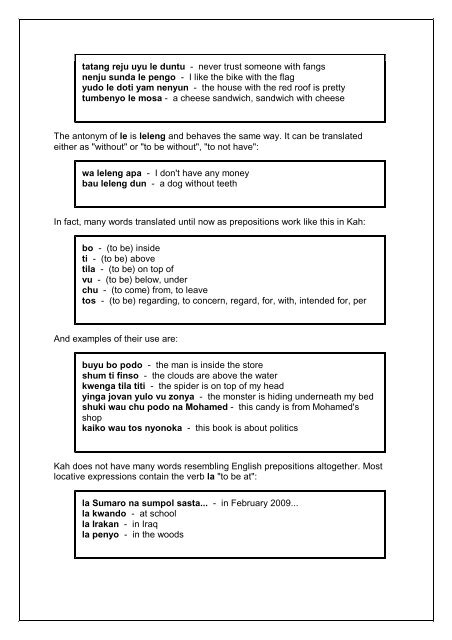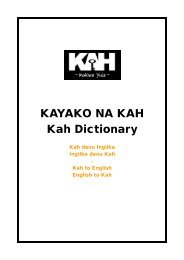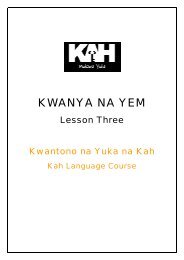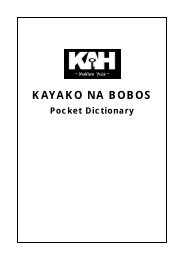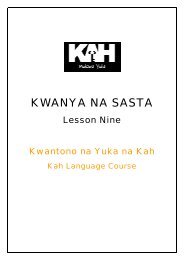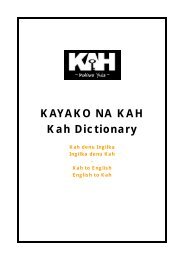You also want an ePaper? Increase the reach of your titles
YUMPU automatically turns print PDFs into web optimized ePapers that Google loves.
tatang reju uyu le duntu - never trust someone with fangs<br />
nenju sunda le pengo - I like the bike with the flag<br />
yudo le doti yam nenyun - the house with the red roof is pretty<br />
tumbenyo le mosa - a cheese sandwich, sandwich with cheese<br />
The antonym of le is leleng and behaves the same way. It can be translated<br />
either as "without" or "to be without", "to not have":<br />
wa leleng apa - I don't have any money<br />
bau leleng dun - a dog without teeth<br />
In fact, many words translated until now as prepositions work like this in <strong>Kah</strong>:<br />
bo - (to be) inside<br />
ti - (to be) above<br />
tila - (to be) on top of<br />
vu - (to be) below, under<br />
chu - (to come) from, to leave<br />
tos - (to be) regarding, to concern, regard, for, with, intended for, per<br />
And examples of their use are:<br />
buyu bo podo - the man is inside the store<br />
shum ti finso - the clouds are above the water<br />
kwenga tila titi - the spider is on top of my head<br />
yinga jovan yulo vu zonya - the monster is hiding underneath my bed<br />
shuki wau chu podo na Mohamed - this candy is from Mohamed's<br />
shop<br />
kaiko wau tos nyonoka - this book is about politics<br />
<strong>Kah</strong> does not have many words resembling English prepositions altogether. Most<br />
locative expressions contain the verb la "to be at":<br />
la Sumaro na sumpol sasta... - in February 2009...<br />
la kwando - at school<br />
la Irakan - in Iraq<br />
la penyo - in the woods


